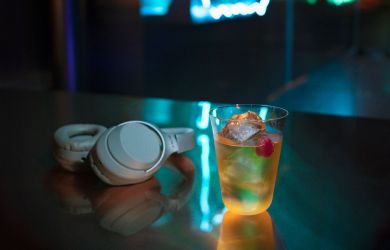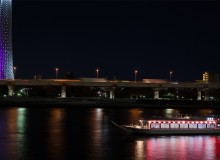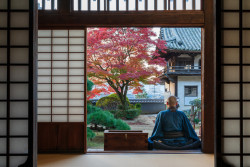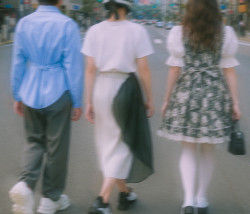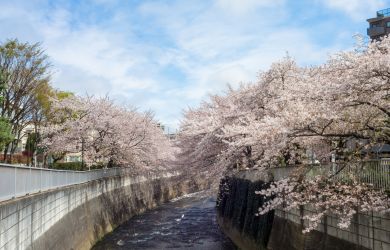
August 26, 2010
Kazumi Watanabe
Four decades on, the jazz icon plays the role of elder statesman
Originally published on metropolis.co.jp on August 2010

Photo by Cedric Leherle
It’s a stifling midsummer day in Tokyo, but as Kazumi Watanabe settles into a conference room at the Tokyo International Forum, he looks every bit the composed jazz elder statesman.
Unruffled in a casual suit with a guitar at hand, Watanabe reminisces about a career that encompasses four decades of jazz. He’s released albums of bop and fusion, worked with everyone from Jaco Pastorius to Yellow Magic Orchestra, and even come within a literal whisper of joining Miles Davis’ band. Current endeavors include an acoustic project called Guitar Renaissance, electric outings under the moniker Jazz Impressions, and orchestral work with the Tokyo Metropolitan Symphony Orchestra. And then there’s the upcoming reunion of his seminal group, To Chi Ka, for this year’s Tokyo Jazz.
Does he ever worry about spreading himself too thin? “Sometimes,” the 56-year-old answers softly. “There are so many different kinds of guitar—electric, acoustic, and the different varieties within these categories. That allows for a lot of freedom of expression, but it’s impossible to do all of them well. So yes, it is a bit dangerous.”
Watanabe got his start in the ’70s, a time when electric fusion was dividing the jazz world into opposing camps. “People said fusion wasn’t jazz,” the Tokyo native recalls, “but I was coming from a rock background, so it was a perfect entry point into jazz for me.”
This was a fertile time for Japanese jazz. Western artists had begun to tour the country regularly, and radio stations like NHK and FEN gave the music heavy airplay. Inspired by what they heard, a new generation of Japanese performers began to put the country on the world jazz map.
Watanabe first made his mark via two albums: Kylyn, recorded with YMO’s Ryuichi Sakamoto in 1979, and To Chi Ka in 1980, featuring heavyweight Americans like vibraphone player Mike Mainieri and bassist Marcus Miller. “It was a big seller in Japan, coming out just after I’d played with YMO,” he says of the latter. “I last played Tokyo Jazz in 2003, and this year people asked me to get To Chi Ka together again. Some of the songs will have new arrangements, and I’m planning to write fresh material too.”
A few years after his collaboration with Sakamoto, Watanabe almost had the chance to play with Davis. “I met him in ’84,” he recalls. “I was recording in New York and went to 7th Ave South club to a session. Miles was there—he was looking for guitarists and invited me—but with his whisper of a voice, I ended up missing the opportunity. I sort of understood that he had invited me to record, but he didn’t specify when or where, so I was at a loss about what to do. But friends knew where he was recording, so if I had just gone there, it’s likely I would have gotten to play with him.”
Watanabe hopes that the freewheeling atmosphere with which Davis alum Herbie Hancock launched Tokyo Jazz will continue after Hancock’s departure as director. “Herbie’s music has always been very future-oriented—that’s what he brought to Tokyo Jazz, and it suited futuristic Tokyo perfectly,” he says. “Tokyo Jazz is a place where musicians can meet, not just where bands appear one after another. Herbie created a fantastic mood through unusual pairings. I hope it can continue to have that quality.”
For this year’s festival, Watanabe will be part of the “Jazz Stream” program on the final night, which is an attempt to trace the evolution of jazz in a single evening. He explains that one reason for reviving To Chi Ka is to bequeath the music to a new generation.
“It’s difficult for young people to discover jazz,” he says. “Our role as musicians is to deliver it to them, which is one reason I wanted to bring back To Chi Ka: to look at the evolution of jazz, and also bring something new, to show how it continues to change. The idea is to make young people part of jazz’s continuing evolution—that’s the job of us ojisan.”
“Tokyo Jazz 2010”
Three-day fest featuring Jazz Crusaders, Ron Carter, Roberta Flack and many more. Sep 3-5, various times, ¥6,500-¥8,5000 (per performance. Tokyo International Forum Hall A, Yurakucho. www.tokyo-jazz.com.

